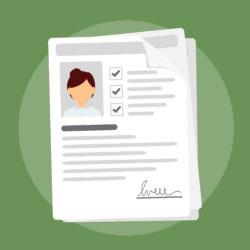Landlord Property Audit Kit – Section 1:9
 Do you need to get a license from the Council?
Do you need to get a license from the Council?
Landlords often assume that its only Houses in Multiple Occupation (HMOs) which require licensing. They also often assume that their property may not be an HMO.
Both assumptions are frequently wrong!
HMO licensing
An HMO (for most HMO licensing purposes) is defined in the Housing Act 2004 under section 254 onwards. This is where you have three or more occupiers who form two or more ‘households’.
A household is basically a ‘family’, i.e. people who are in a relationship (married or just cohabiting) or are related (brothers, parents, cousins, including half-blood relatives and step and foster children), but it can also include employees such as nannies and carers.
There are slightly different rules for flats – which may not require licensing at all, or may require licensing only if they fall within the different definition under s257 of the Housing Act 2004.
A section 254 HMO is a licensable HMO if either:
- There are five or more occupiers who form two or more households (plus, in Wales, the property has three or more storeys), or
- If the Local Authority has an additional licensing scheme
The statute is more detailed but those are the main points.
Additional licensing schemes are where the Council is allowed to require licensing for HMOs which have fewer than five occupiers, or are flats.
So landlords need to be aware that
- If their tenants have introduced a new occupier into the property – this could turn it into an HMO without them realising this!
- If the Council has set up an additional licensing scheme, this could mean that their property needs a license even though it has fewer than five occupiers, and
- Even if it is not an HMO at all, it could require a license if the Council has a selective licensing scheme in place
Selective licensing
This is where ALL landlords, either in the whole of a borough or in certain specified wards, need to get a license, whether the property is an HMO or not.
This is often used for particular problem areas. However, there are a few Local Authorities where the scheme applies across the whole of their area.
Licensing schemes (additional and selective) will normally last for five years, but since December 2024, the Local Authority does not have to apply for permission to set up or renew a scheme, as there is a general approval order in force.
This is why landlords must ALWAYS check with their Local Authority/Council to see what the situation is in their area. Because:
If a license is required but is not obtained:
- The landlord can be prosecuted in the Magistrates’ Court, where fines are now unlimited
- The landlord can be served with a penalty charge notice for up to £30,000 per offence, and
- The tenants (or the Local Authority if the rent is paid by some form of benefit) can apply for a Rent Repayment Order of up to 12 months’ worth of rent.
Landlord Law members can find out more about penalties for failure to license an HMO here and failure to obtain a selective license here.
This is why landlords should check regularly to see what the requirements are with their Local Authority. As it changes from time to time.
I include below a short video clip on Local Authority attitudes which may help with your dealings with them.
Renters Rights Act Changes
Note that the Act will bring in increased penalties for non-compliance with licensing rules. For example, rent repayment order awards will increase to up to 24 months worth of rent.
Your Property Audit:
- First, make sure you know the Local Authority for your property/properties. You can find this out here.
- Then check how many people are living at all your properties to make sure that none of them have converted to HMOs without your being aware of this (this is one reason why Property Inspections are so important).
- If your properties are already licensed, then you need to be sure that the permitted number of occupiers is not being exceeded.
- Then check with your Local Authority to see whether there are any changes in the licensing requirements for your property since you last checked. Landlord Law members can use our Local Authority Directory for this. Although it is best to use the links in the directory to view the Council website, as our directory is only updated about once a year.
- All Local Authorities have a website which should have details of their licensing requirements for private sector landlords. If you cannot find the details, ring them up and ask them.
- We recommend that you check the licensing situation at your Local Authority not less than once every six months. Keep a record of your check! Just in case you are accused of breaching the rules.
- 1.1 Protecting your property against fraud
- 1.2 Rent Smart Wales
- 1.3 What is your tenancy type?
- 1.4 Insurance
- 1.5 Your Bank Account
- 1.6 Record Keeping
- 1.7 Dealing with Data and the Information Commissioner’s Office (ICO)
- 1.8 If you hold your properties in a Limited Company.
- 1.9 Do you need to get a license from the Council?
- 1.10 What about deposits?
- 1.11 Is your property at risk of flooding?
- 1.12 Are you dealing with waste properly?
 Do you need to get a license from the Council?
Do you need to get a license from the Council?
